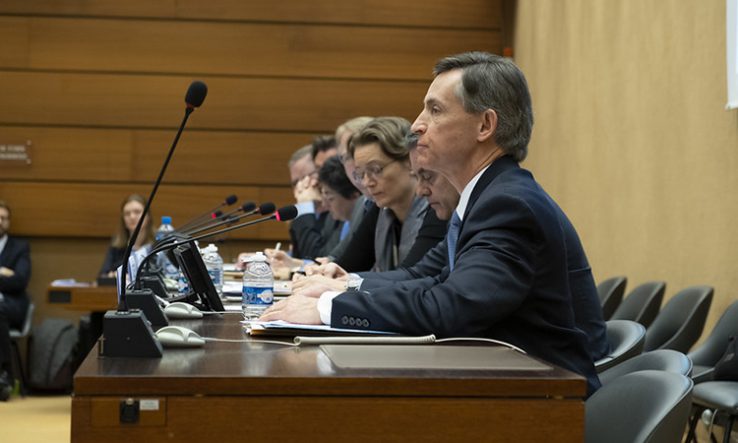
Image: United Nations Conference on Trade and Development[CC BY-SA 2.0], via Flickr
The importance of an advisory group for a first major bid
The Arts and Humanities Research Council’s Early Career Research Grants offer funding for two-to-five-year projects to those who have either received their PhD or equivalent professional training in the past eight years or are within six years of their first academic appointment. One of the AHRC’s goals is for grantees to gain experience of managing and leading research projects.
Grants are worth between £50,000 and £250,000 and the scheme is open year-round.
Nicola Walshe, head of the school of education and social care at Anglia Ruskin University, was awarded an Early Career Research Grant in May 2019 for her eco-capabilities project.
Tell me about your project
It is a participatory study at the intersection of three issues: a concern with children’s wellbeing; their apparent disconnect with the natural environment; and a lack of engagement with the arts in school curricula. It builds on Amartya Sen’s work on human capabilities and the overarching aim is to explore how working with artists in nature influences children’s wellbeing.
Did you consider any other funding schemes?
I considered applying to the Economic and Social Research Council due to the educational element of the project. However, while the project is very much about practice in primary schools, the primary focus is the intersection of art, nature and wellbeing, so the AHRC seemed more appropriate. I also liked the fact that a mentor was built into the project as a co-investigator on the AHRC scheme.
What elements did you highlight in your proposal?
I emphasised the project’s innovation in that it brings together those three key issues. I also wanted to highlight that I was not only reconceptualising wellbeing through an environmental and sustainability lens but also exploring this from the children’s perspective. As part of the project, we ask the children what they think is important for flourishing. As such, we are not only considering the children’s wellbeing against a set of criteria; we are allowing the children to define the criteria themselves.
Was this your first major grant?
Yes. I did not have a lot of experience with writing funding applications—I had only written a couple of British Academy and Leverhulme small grant applications, neither of which had been successful. However, if I had not been through that process, I don’t think I would have developed such a strong application for the AHRC. Even though I did not get any feedback from those applications, they allowed me to go through the process of developing a bid alongside collaborators.
How was your first UK Research and Innovation application?
I found it challenging to navigate the different elements of a bid. For example, it was a steep learning curve to fully understand how full economic costings are calculated. I spoke with several colleagues and academics who had more experience, including those from beyond my institution. Once familiar with the documentation and processes, it was just a question of drafting, redrafting and redrafting again.
What did you learn from the people you contacted?
The importance of starting with a really strong advisory group. Before this, I might have considered it tokenistic to include other people on a bid. However, my advisory group has been a tremendous source of support and advice, particularly during Covid-19, which has brought significant challenges: we have had to extend our project by 11 months.
Who is on your advisory group?
It includes colleagues from a wide range of backgrounds, including a head teacher and academics from the disciplines of health and wellbeing, theatre education and children’s literature. As well as supporting the conception of the project, they were helpful in supporting the application process and I always emerge from advisory group meetings reinvigorated and inspired.
Do you have any tips for forming these partnerships?
I knew a number of the people on my advisory group prior to the conception of the project. Others were contacts of contacts, but I now consider them good colleagues. I believe it’s about being brave enough to approach people who you do not necessarily know, to try to find a connection. People are not always available to join in a formal capacity but, in my experience, they are almost always pleased to have been approached and are keen to stay in touch.
Did you use any grantsmanship tricks that may have helped?
I included visual evidence; while not compulsory, I think diagrammatic representations can help bring to life aspects of the documentation, such as the project timeline, to provide a more engaging overview.
What advice do you have for preparing a first major bid?
Get support from as many different avenues as you can. In my experience, colleagues from other disciplines can provide comments or suggestions that may strengthen an application.
This is an extract from an article in Research Professional’s Funding Insight service. To subscribe contact sales@researchresearch.com